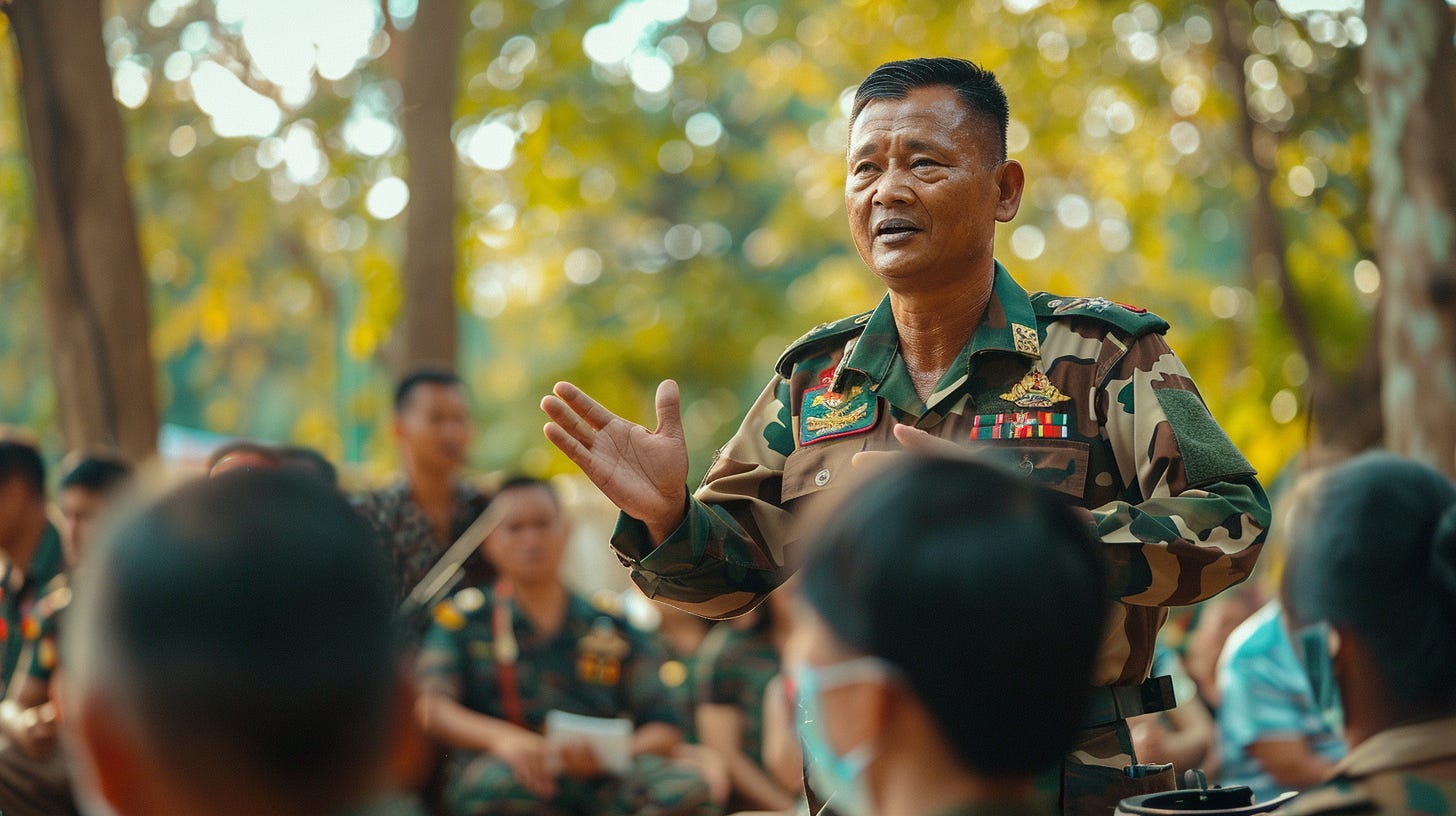Cambodia's Military Bands Strike a Patriotic Chord in Public Parks
PHNOM PENH — In an initiative to bolster national pride, Cambodia has introduced a novel approach to fostering patriotism among its citizens. Military bands, traditionally reserved for ceremonial events and state functions, are now performing in public parks across the nation. The new program, rolled out by the Ministry of National Defense, aims to bring the melodies of martial tradition into the everyday lives of Cambodians.
Every weekend Phnom Penh’s central parks come alive with the robust and stirring sounds of military brass bands. Passersby, families on picnics, and fitness enthusiasts are treated to renditions of national anthems, military marches, and folk songs that resonate with the country’s historical and cultural pride.
Colonel Sokha Khemarin, the director of the Military Music Division, explained the initiative's goals. “Music has a unique ability to unite people,” he said. “By bringing our bands into public spaces, we hope to strengthen the patriotic spirit and remind everyone of our shared values and history.”
The musicians, decked out in full military regalia, have become a symbol of national unity. Their presence in the parks is intended to serve as a daily reminder of the sacrifices made by the armed forces and the importance of national pride in the face of modern challenges.
The public’s response to this initiative has been overwhelmingly positive, albeit mixed with curiosity and surprise. For many, it is their first encounter with military bands outside of state ceremonies or televised broadcasts.
“I never thought I’d see something like this in a park,” said Sokchea Chhin, a local shop owner who frequently visits Wat Botum Park. “It’s inspiring and makes me feel proud of our country. My children love the music, and it’s become a weekend highlight for us.”
The program also aims to educate younger generations about the significance of military traditions. School groups are often seen visiting the parks, where teachers use the performances as impromptu history lessons. “It’s a wonderful way to teach children about our heritage,” noted Ratha Sann, a primary school teacher. “The music helps them connect with the past in a very tangible way.”
For the musicians, this initiative represents a significant shift from their usual duties. Sergeant Chan Sopheap, a trumpeter with over a decade of service, shared his thoughts on this new role. “Performing in the parks is very different from playing at official ceremonies,” he said. “Here, we see the immediate reactions of the people. It’s rewarding to see their smiles and hear their applause.”
Training for these public performances has also evolved. In addition to their regular repertoire, band members are now learning popular songs and even taking requests from the audience. “We want to connect with the public on a personal level,” added Sopheap. “Playing their favorite songs helps us build a closer bond with the community.”
This initiative has not only provided a platform for musicians to showcase their talents but also encouraged them to interact more with the public, creating a bridge between the military and civilians.
Looking ahead, the Ministry of National Defense has plans to expand the program beyond Phnom Penh. Pilot performances in provincial capitals like Siem Reap and Battambang have received enthusiastic responses, prompting discussions about making the military band performances a permanent fixture across Cambodia.
General Chhorn Vichit, the Deputy Minister of National Defense, expressed optimism about the program’s future. “This initiative has shown great potential in fostering national unity,” he remarked. “We are exploring ways to integrate more cultural elements into our performances and possibly collaborate with local artists and musicians.”



